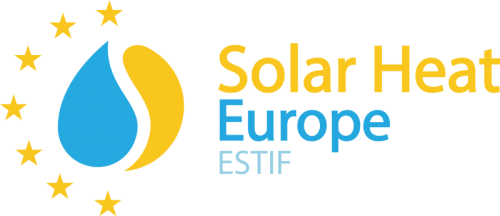Heating & Cooling
 Heating and cooling (H&C) represents today 46% of EU energy system. That is, more than 5700 TWh, out of which, only 18% are produced with renewable sources of heating. That said, in light of the magnitude of the H&C sector, this contribution is still higher – in absolute terms – than renewable electricity: around 1000 TWh of renewable heating are today deployed in the EU energy mix, against a bit less than 900 TWh of renewable electricity.
Heating and cooling (H&C) represents today 46% of EU energy system. That is, more than 5700 TWh, out of which, only 18% are produced with renewable sources of heating. That said, in light of the magnitude of the H&C sector, this contribution is still higher – in absolute terms – than renewable electricity: around 1000 TWh of renewable heating are today deployed in the EU energy mix, against a bit less than 900 TWh of renewable electricity.
Contrary to the electricity sector, where all electrons are equal, regardless of their source or final use, the heating sector is composed of various forms of heat. Different needs require different temperature levels, hence different applications, technologies and heating sources are required to cover all H&C needs.
Due to the quality of the energy involved, the H&C sector is mostly decentralized. Heating cannot be effectively traded, sold or transported over long distances or across countries. Centralised solutions such as highly efficient 4th generation district heating, with a high share of renewables in it, are to be pursued whenever feasible. However, the EU H&C market includes over 120 million individual boilers, mostly old and inefficient. No centralised solution alone can cope with this challenge! The heating sector needs involving millions of consumers, each spending a few to improve their heating system and switch to renewable heat, rather than a few large projects, each worth several million euros.
Decarbonising the heating and cooling sector will be the main challenge for our energy system, and renewable heat will necessarily be the main answer. However, it also offers great opportunities to support local industries, create local jobs, improve air quality and reduce energy dependency by using local sources of renewable heat. The heating sector is so huge that no technology can claim absoluteness, a mix of different renewable technologies and solutions will be necessarily needed by 2050 to fully decarbonise it. With the ultimate objective of completely replacing the use of fossil fuels in the H&C sector, different solutions exist: for a full and effective decarbonization of our energy system, solar thermal must be a central part of these solutions!
The H&C sector received very little attention from policy-makers, until recently. The 2009 Renewable Energy Directive was ill-equipped to deal with heating, while it extensively promoted renewable electricity. The new 2030 framework is the opportunity for the sector to correct past policy mistakes, and for the EU to finally untap a key sector for its decarbonization efforts, as well as for energy security, air quality, local jobs and growth.
In February 2016, the Commission published the European Strategy on Heating and Cooling. Solar Heat Europe welcomed the publication of the strategy as a first step in exploring the issues and challenges in this sector, and an important milestone to improve the policy framework for the solar thermal sector, as it sets the direction for future EU legislative works.
The Strategy engages the EU in a series of actions to promote the decarbonization of the heating and cooling sector, including a reinforced promotion of renewable heating and cooling. In particular, the Strategy calls for a ‘comprehensive approach to speed up the replacement of obsolete fossil fuel boilers with efficient renewable heating technologies’, and recognized synergies between renewable heating and cooling and energy efficiency measures.
